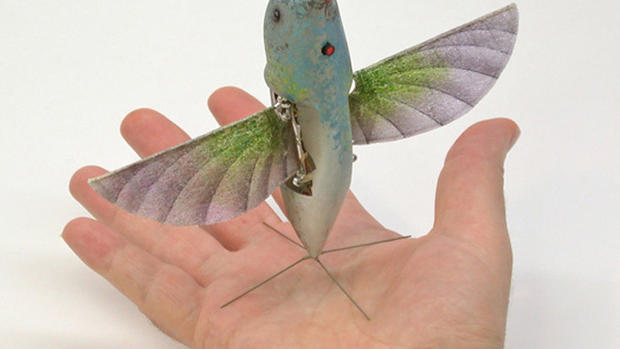Drone technology myths, facts and future feats
It's not just birds and planes in the sky anymore -- drones are on the rise. But how much do we know about the flying machines? As the technology progresses, it appears that the aerial devices are also getting smarter.
Drones come in a variety of shapes and sizes that range from the small, radio-controlled devices flown by hobbyists to military machines larger than a human. But there are a few ways to identify and categorize them.
Technically, a drone is any unmanned aerial vehicle (UAV). The devices are sometimes called unmanned aircrafts (UA), unmanned aerial systems (UAS) or remotely piloted aircrafts (RPA). Whatever they are called, they all have a few basic things in common: They are remotely controlled, can transmit data back to a ground source and are unmanned.
The smallest drones are nimble and get into places that humans cannot. Researchers hope these devices can assist in search and rescue missions, especially in places that are too dangerous for humans to tread. The largest drones can fly into war zones and survey landscape that is unsafe or inaccessible to humans, or drop bombs in a military strike.
Although there is no pilot steering a drone, one must have some type of human intelligence controlling its every move. There is no artificial intelligence technology that is currently known that will let drones fly without a human in control. But the machines are learning.
Professor Todd Humphreys at the University of Texas at Austin, who has done extensive research on drones, says the flying devices can -- and probably will -- get smarter.
"Drones don't want to be piloted, they want to be autonomous," Humphreys told CBSNews.com, adding that even if they appear to be acting independently, they are likely receiving high-level directives.
"They would probably have adaptive control techniques," Humphreys said. "It would appear to us that they are learning." Computer programs can be trained to learn how to adjust its behavior based on a set of directives. Although it seems like the machines are making decisions, they are simply going down a checklist of options before taking an action.
"True autonomy is a long way off, but it's interesting," Humphreys said. "You might not be able to tell the difference between deep AI and extremely elaborate programming."
It's not likely that a drone will become self-aware, like in a science fiction movie, and decide to behave maliciously. But that doesn't mean there aren't safety concerns. The most obvious question raised is whether or not drones can be hacked, like computers.
As far back as 2009, a report by the Wall Street Journal revealed that hackers downlinked video feeds from Predator drones. The Pentagon later said that pirates in Iraq and Afghanistan did access unprotected video feeds, but were not able to hack into system controls or alter videos.
Last year, Humphreys and his graduate students held an experiment at the University of Austin Texas to demonstrate that the GPS system of a civilian drone could be "spoofed" - a term used to describe when a false set of commands has replaced the original without being detected.
Humphreys told CBSNews.com that his team was able to successfully hijack the drone because it was using a civilian GPS system, which unlike military versions, is not typically encrypted. However, with the rise of mobile devices that use GPS systems, he believes this will be a major concern going forward.
Although the students' demonstration was unsettling, there has been no evidence to suggest that military drones have been compromised in a similar manner. The vehicles used by the U.S. government have a sophisticated security system that would be incredibly difficult to breach, though not impossible. Humphreys says it was a feat in itself to hijack a civilian drone in a manner that could not be detected.
"It took five Ph.Ds a couple of years to do," Humphreys said. "The hacker community probably wouldn't be able to do it, but state actors definitely could."
